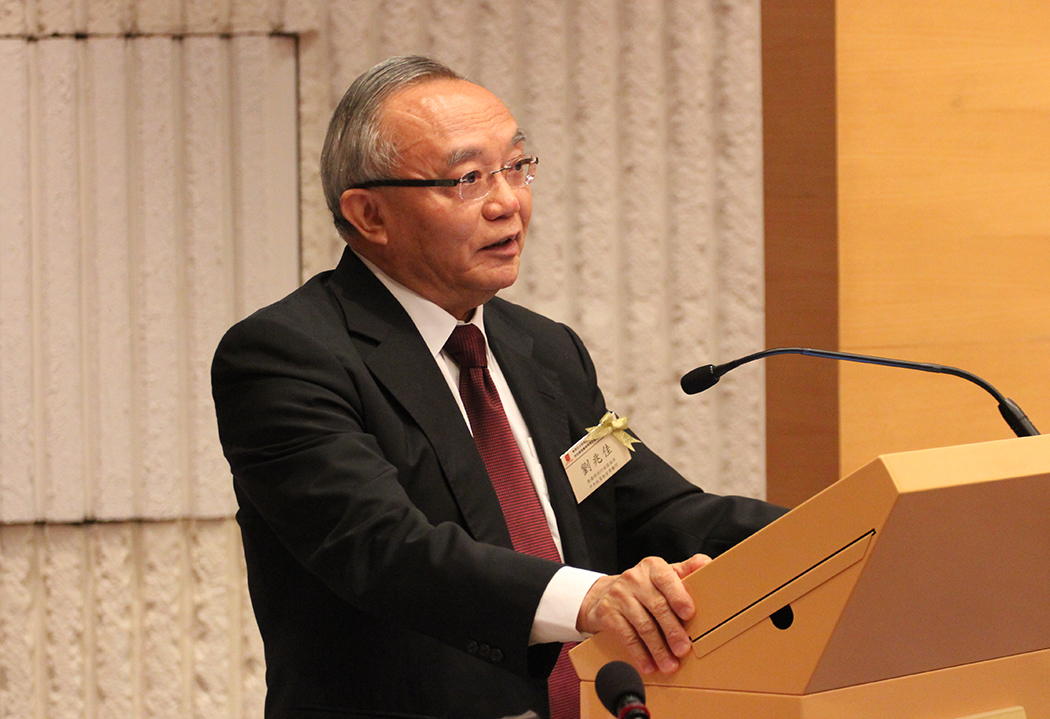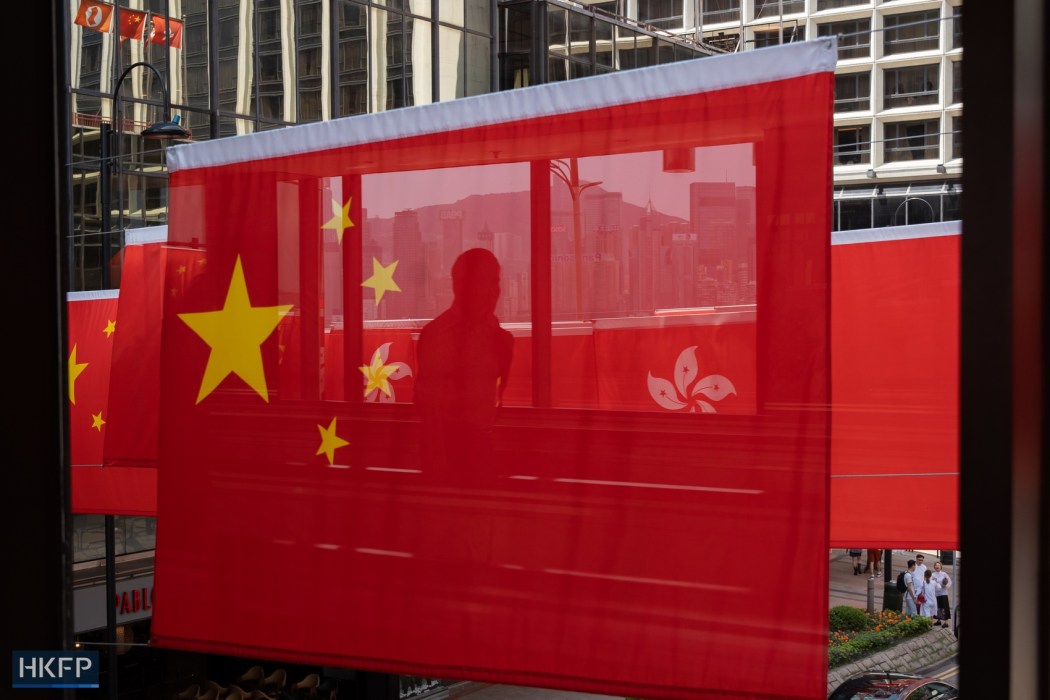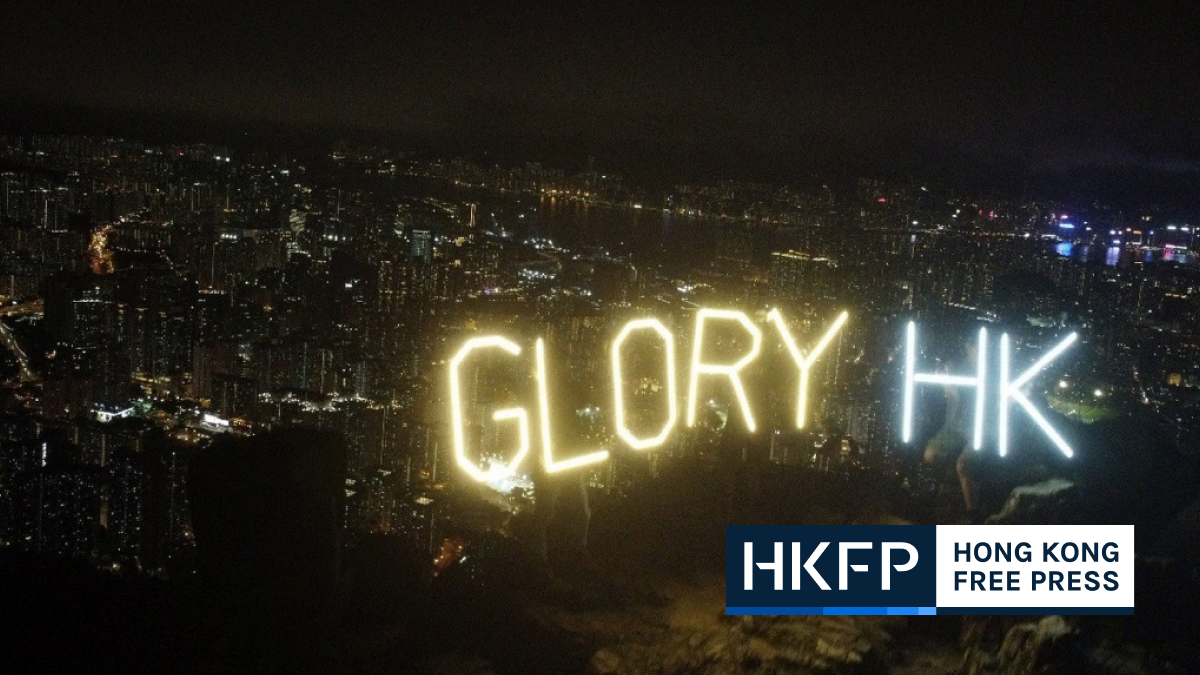The prospect of transferring local national security cases to mainland China would be “exceptional,” and ultimately a decision made by Beijing, Hong Kong’s justice chief has said. It comes after a pro-Beijing scholar said the use of US sanctions against judicial figures could prompt a situation where suspects are extradited to the mainland for trial.

Justice Secretary Paul Lam on Sunday declined to comment as to whether the national security case against media tycoon Jimmy Lai would be transferred to mainland courts for trial, saying it was a “hypothetical question.” But the power to decide on such transfers would fundamentally lie with the central government, as stipulated in the national security law, he told TVB in Cantonese.
Earlier, prominent pro-Beijing scholar Lau Siu-kai, and veteran politician Tam Yiu-chung, said a new round of US sanctions could prompt Beijing to use Article 55 of the national security law, which would allow for such transfers.
Article 40 and 55 of the national security law – click to view.
Article 40: The Hong Kong Special Administrative Region shall have jurisdiction over cases concerning offences under this Law, except under the circumstances specified in Article 55 of this Law.
Article 55: The Office for Safeguarding National Security of the Central People’s Government in the Hong Kong Special Administrative Region shall, upon approval by the Central People’s Government of a request made by the Government of the Hong Kong Special Administrative Region or by the Office itself, exercise jurisdiction over a case concerning offence endangering national security under this Law, if:
(1) the case is complex due to the involvement of a foreign country or external elements, thus making it difficult for the Region to exercise jurisdiction over the case;
(2) a serious situation occurs where the Government of the Region is unable to effectively enforce this Law; or
(3) a major and imminent threat to national security has occurred.
Lau and Tam’s remarks came as US lawmakers proposed a bipartisan bill to impose sanctions on 49 Hong Kong judges, prosecutors, and government officials to hold them “accountable for human rights violations.” Lau said Article 55 was “a last resort,” which states that foreign interference could amount to situation where Hong Kong would not be able to exercise independent jurisdiction over national security cases.

“But the Article 55, first and foremost, is an exceptional clause,” Lam said in Cantonese. “Article 40 states that offences under the security law would be handled in Hong Kong’s jurisdiction unless under the circumstances specified in Article 55.”
Lam said the procedure for invoking Article 55 is “deliberate,” which involves the Hong Kong government or the Hong Kong Office for Safeguarding National Security filing a request to Beijing. “But ultimately, it’s a central government’s decision,” he added.
Chinese legal procedures
Lam also said that, even under the circumstances of a mainland transfer, it would not constitute “unfairness” to the accused as only the legal procedure would change.
“The offences are still the four offences under the security law… It would not be the case where, if the Chinese government takes over jurisdiction, then the charge will change, or the punishment will escalate.”
Lam said that, under the circumstances of a mainland transfer, the prosecution and the trial would be handled by Chinese authorities, following Chinese legal procedures: “The change will be procedural, and not legal.”
During Hong Kong’s anti-China extradition protests and unrest in 2019, 70 international rights NGOs said in a joint letter that China’s justice system has a record of serious violations of fair trial rights. There is also evidence of torture and other ill-treatment, enforced disappearances and cases of incommunicado detention without trial. NGO Safeguard Defenders has said that China had a 99.975 per cent conviction rate in 2022.

When asked about whether Hong Kong lawyers could represent the accused in mainland, Lam said he had not considered this issue, adding that those cases would be represented by eligible lawyers in China.
Last week, Lam said he was “100 per cent confident” that Hong Kong could handle upcoming national security cases.
Beijing inserted national security legislation directly into Hong Kong’s mini-constitution in June 2020 following a year of pro-democracy protests and unrest. It criminalised subversion, secession, collusion with foreign forces and terrorist acts – broadly defined to include disruption to transport and other infrastructure. The move gave police sweeping new powers and led to hundreds of arrests amid new legal precedents, while dozens of civil society groups disappeared. The authorities say it restored stability and peace to the city, rejecting criticism from trade partners, the UN and NGOs.
Support HKFP | Policies & Ethics | Error/typo? | Contact Us | Newsletter | Transparency & Annual Report | Apps
Help safeguard press freedom & keep HKFP free for all readers by supporting our team
























